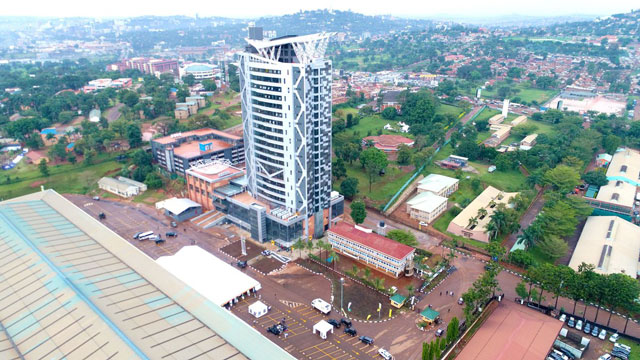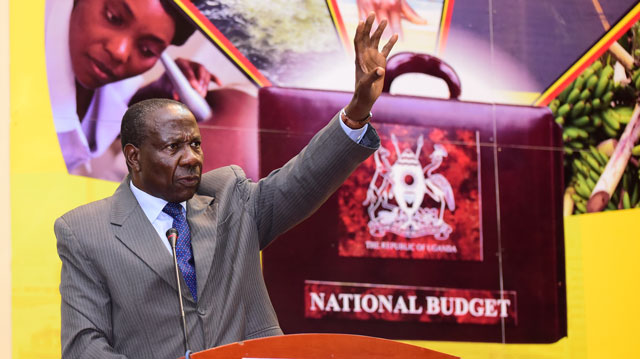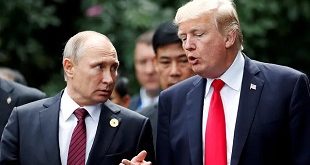
Experts expose how Museveni is destroying economy
Kampala, Uganda | HAGGAI MATSIKO | The budget this year is proving to be a headache. After years of borrowing to finance huge road and electricity projects, Ministry of Finance has a new pain – how to finance new huge defense and security budgets.
The new demands have pushed the budget from Shs34 trillion in the early planning stages to Shs37 trillion initially, and to over Shs40 trillion now expected to be announced at end of June.
To understand how big the Shs40 trillion budget is, it must be compared not only to the Shs32 trillion of last year but to the Shs22 trillion of 2017 and the Shs20 trillion of 2016. The budget for next financial year represents a 60% jump in the money the government is spending from back then.
Under normal circumstances, a bigger budget should be great news as it would mean more money to spend on more schools, hospitals, and other services for wananchi.
Instead, the government’s plan to spend Shs40 trillion in the 2019/20 Financial Year which starts in July is being described as a crisis that threatens to hurt the economy. Why?
The experts cite several other concerns.
First, the government is clamoring to spend more money than it can collect domestically in taxes.

The new collection target for the Uganda Revenue Authority (URA) is Shs18 trillion, up from Shs16 trillion last year.
“Because of this ever increasing spending appetite, we are seeing politicians initiating taxes based not on research but their whims,” ,” says Ramathan Ggoobi, a renowned commentator who teaches economics at Makerere University Business School (MUBS).
Other experts, basing on URA’s previous performance, say URA will fail to collect this money and pile even more trouble on the budget planners. They point at the current year where URA is supposed to collect Shs16 trillion, but fell short of target by a whopping one trillion.
Year after year, URA has consistently failed to meet its targets because they are unrealistic, the experts say.
This is because instead of expanding the tax base by getting into areas that are currently not taxed, the government only keeps heaping new taxes on the same people. What economists refer to as tax to GDP ratio or the proportion of tax revenue in the entire economy (US$26 billion) has stagnated at slightly over 13%.
Ggoobi says rather than taxing the same small bracket of business people, the government should be getting into areas like agriculture, which remained under-taxed. Although agriculture contributes 24% of GDP, it pays only 1% of taxes.

5 trouble points
These contradictions mean trouble for the common taxpayer on five fronts.
On one front, instead of increasing money for social services like schools, hospitals, and public service welfare; the government is cutting them to fund defense and security.
On the other front, the government is to try to squeeze as much tax as it can from the few taxpayers in its database. So FY2019/20 is likely to be a year of tightening the belt.
On the third front, the government is to borrow big time. This approach is problematic at two levels. First, the national debt situation was already getting out of hand without the new pressures.
Secondly, the figures before parliament show, the government intends to aggressively borrow from the local money market. This move will kill local businesses because it crowds them out of the credit market by offering commercial banks high risk free returns.
On the fourth front, unlike borrowing to build roads and bridges that contribute directly to the economy and can be seen and used, defense and security are secretive items whose details are classified and often become conduits for budget indiscipline.
Related to budget indiscipline, on the fifth front, the massive budget comes at a time when the 2021 election campaigns loom large. Most commentators have pointed at the past to show that President Yoweri Museveni and his ruling NRM party often need piles of cash during election. It is not unusual for the state treasury to be raided in the guise of classified expenditure.
“Politicians world over want expansionary budgets because they want to show that they are spending on development in order to be popular,” says Ggoobi.
But in Uganda’s case, he blames officials in charge of the treasury for failing to be firm and saying no.
“The technical managers of the economy are no longer in charge,” he says, “This is not surprising because some of these managers have either hit retirement age or their contracts are near expiry.”
“They rely on the good will of the executive (Museveni)—they are vulnerable and cannot stand firm against the whims of the politicians.”
 The Independent Uganda: You get the Truth we Pay the Price
The Independent Uganda: You get the Truth we Pay the Price



